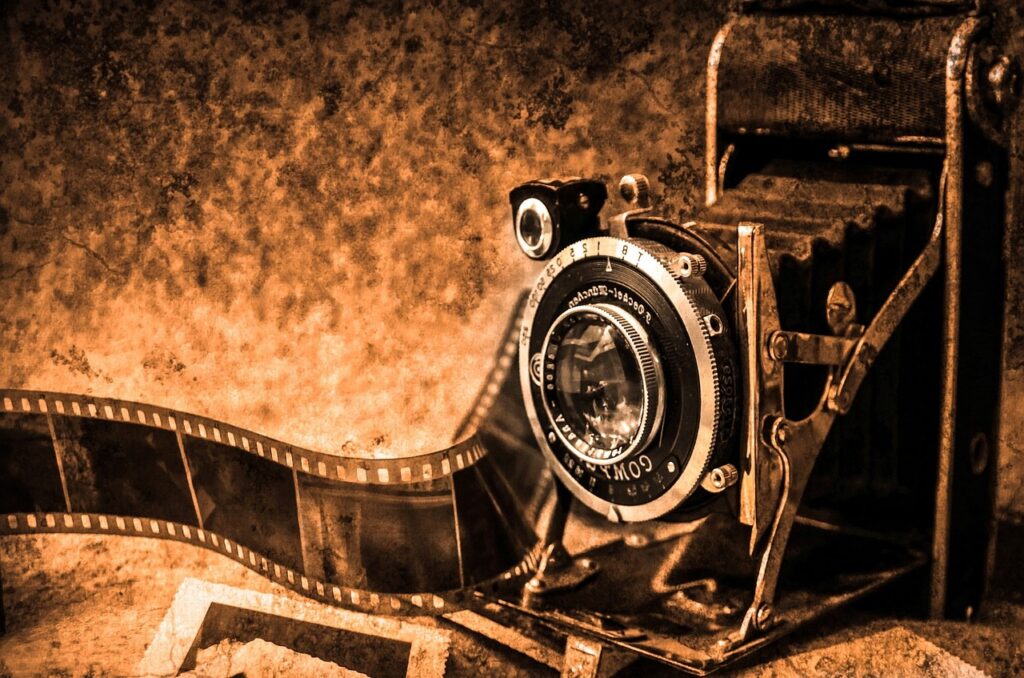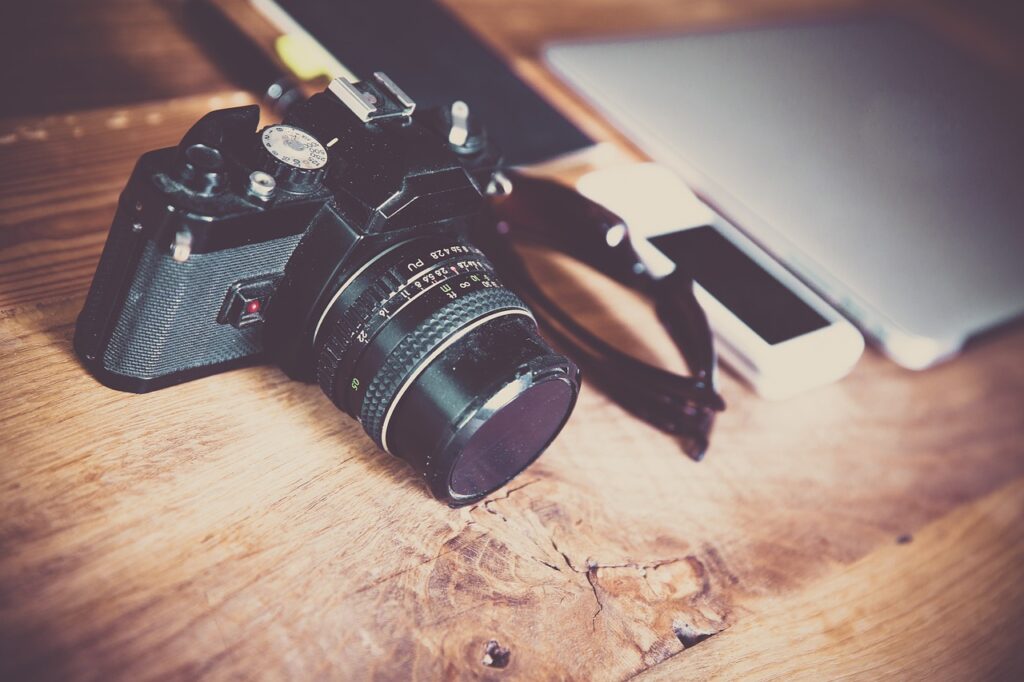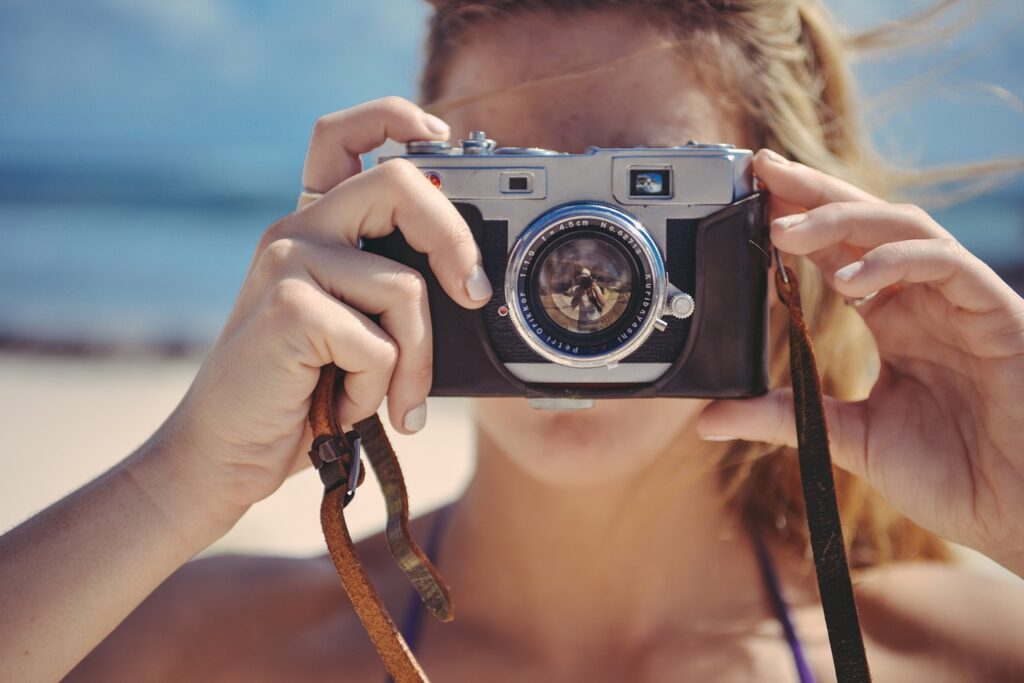
Are you ready to take the plunge and buy your first digital camera? It can be a daunting task trying to figure out which one is right for you. Thankfully, this blog post will be your trusty guide to picking your first digital camera. We’ll walk you through the key terms and features to look out for, helping you to become a digital camera pro in no time.
Understanding key terms in digital photography
Understanding key terms in digital photography can be confusing, but don’t worry, we’re here to help! When it comes to buying your first digital camera, it’s important to know the lingo. Megapixels, zoom capabilities, and manual controls are just a few terms you’ll come across. The best compact camera, best polaroid camera, best mirrorless camera, best instant camera, and best vlogging camera are all options to consider. By familiarising yourself with these key terms, you’ll be well on your way to finding the perfect camera for your needs. Let’s dive in!
Types of digital cameras
When it comes to digital cameras, there are several types to choose from, each with its own unique features and advantages. If you’re just starting out, the best camera for beginners is often a compact camera, which offers ease of use and portability. For those looking for a retro vibe, a polaroid camera is a great choice.
Mirrorless cameras are popular among photography enthusiasts, offering high-quality images and interchangeable lenses. Instant cameras are perfect for capturing and printing memories instantly. And if you’re interested in vlogging, the best vlogging camera will have features like flip screens and excellent video quality. Consider your needs and preferences to find the perfect camera for you.
Considerations before buying a digital camera
Before buying your first digital camera, there are a few important factors to consider. First, think about your needs and preferences. Are you looking for a compact camera that is easy to use and portable? Or maybe you want a retro vibe with a polaroid camera?
If you’re a photography enthusiast, a mirrorless camera with interchangeable lenses might be the best choice. Instant cameras are great for capturing and printing memories instantly, while vlogging cameras are perfect for those interested in creating videos. Consider your interests and find the camera that suits you best.

Megapixels: Do they matter?
When it comes to megapixels, the big question is: do they really matter? Well, it depends on what you’re looking to do with your photos. If you’re just planning to post them on social media or print them in small sizes, then a lower megapixel count might be perfectly fine.
However, if you want to enlarge your photos or crop them extensively, a higher megapixel count can make a significant difference in maintaining image quality. So, if you’re a beginner or looking for a compact camera, the best camera for beginners might not necessarily have the highest megapixel count. Consider your needs and the intended use of your photos before getting caught up in the megapixel hype.
Zoom capabilities
When it comes to zoom capabilities, you’ll want to consider how close you can get to your subject without compromising image quality. Some cameras have optical zoom, which uses the lens to magnify the image, whilst others have digital zoom, which essentially crops the image to make it appear closer.
For the best zoom capabilities, look for a camera with a high optical zoom range, like the best compact camera or the best mirrorless camera. This will allow you to capture distant subjects with clarity and detail, whether you’re shooting wildlife or a distant landscape. Don’t let those far-off shots slip away – choose a camera with impressive zoom capabilities!
Manual controls vs. automatic
When it comes to manual controls versus automatic, it all comes down to how much control you want over your photography. Automatic settings can be great for beginners or those who simply want to point and shoot, as the camera will take care of all the technical details for you.
However, if you want to have more creative freedom and the ability to adjust settings like aperture, shutter speed, and ISO, then manual controls are the way to go. Manual controls allow you to have complete control over your image, allowing you to experiment and get the exact look you want.
So, whether you’re shooting with the best polaroid camera or the best instant camera, consider your photography style and preferences when deciding between manual controls and automatic.
Lens quality
One important factor to consider when buying a digital camera is the quality of the lens. The lens plays a crucial role in determining the sharpness, clarity, and overall image quality of your photos. A high-quality lens will produce crisp and detailed images, with minimal distortion or aberrations.
Look for cameras that have lenses made from high-quality materials and that offer a wide aperture range for better low-light performance. Remember, the lens is like the window to your photography world, so investing in a camera with good lens quality will greatly enhance your photographic experience.

Image stabilisation
Image stabilisation is an important feature to consider when buying a digital camera. It helps to reduce camera shake and ensure that your photos and videos come out clear and steady, even in low light or when shooting handheld.
There are different types of image stabilisation, such as optical image stabilisation (OIS) and electronic image stabilisation (EIS). OIS uses gyroscopic sensors to detect and compensate for movement, whilst EIS uses software algorithms to digitally stabilise the image.
Both can be effective, but OIS generally offers better results. So, if you want sharp and stable images, look for a camera with good image stabilisation capabilities.
Video capabilities
If you’re someone who loves capturing videos, then you’ll want to pay attention to the video capabilities of your digital camera. Not all cameras are created equal when it comes to shooting videos, so it’s important to consider your needs and preferences. Look for cameras that offer high-resolution video recording, such as 4K or even 8K, for stunning clarity and detail.
You’ll also want to check if the camera has features like image stabilisation to ensure smooth and steady footage. Additionally, consider the frame rate options and any special video shooting modes that might enhance your creativity. With the right camera, you’ll be able to create professional-quality videos that truly stand out.
Battery life
Battery life is an important consideration when choosing a digital camera. There’s nothing worse than being in the middle of capturing the perfect shot and having your camera die on you. Look for a camera with a long battery life, especially if you plan on taking it on trips or shooting for extended periods of time. You don’t want to miss out on any great photo opportunities because your battery ran out. Consider investing in a camera with a strong battery life to ensure that you’re always ready to capture those special moments.
Brand and customer support
When purchasing a digital camera, it’s crucial to take into account the brand and customer support. Seek out reputable brands that have a strong track record in the industry. Established brands frequently provide higher quality products and dependable customer support in the event of any problems.
Read reviews and conduct some research to discover what other customers have to say about the brand’s customer service. Having robust customer support can have a significant impact on your overall camera experience, so select a brand that is known for looking after their customers.

